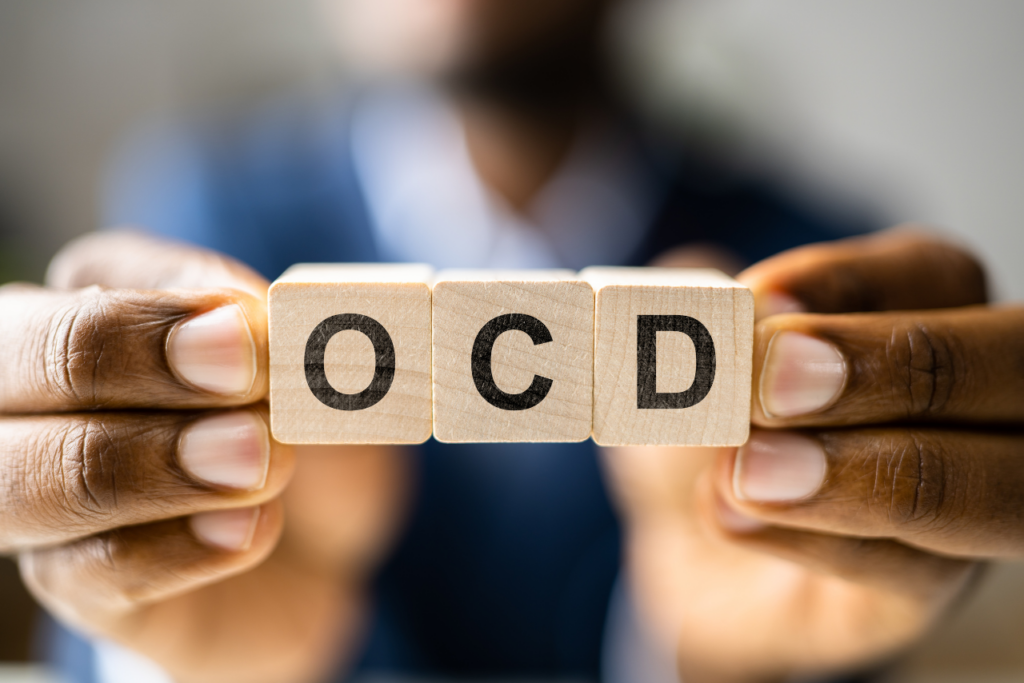If you’ve spent much time reading about obsessive-compulsive disorder (OCD) online, you may have encountered references to a version of this condition called pure OCD. What is pure OCD, and how does it vary from “traditional” OCD?
What Is OCD?
To understand what pure OCD is, it can be helpful to first review some fundamental facts about obsessive-compulsive disorder (OCD).
Obsessive-compulsive disorder (OCD) presents as a complex and widely misunderstood mental health condition, defined by intrusive thoughts and overwhelming behavioral urges.
TV shows and movies often portray people with OCD as quirky, eccentric, or overly focused on organization. The truth is that the symptoms of OCD can be sources of immense psychological distress, take up inordinate amounts of time, and undermine a person’s ability to live a full and satisfying lifestyle.
Obsessions
Obsessions are recurrent intrusive thoughts that are sources of considerable distress for the person who experiences them. Examples of common OCD-related obsessions include:
- Intense fear of becoming contaminated
- Deep concern that they will harm themselves or others
- Anxiety about forgetting to perform household safety tasks such as unplugging appliances or locking the doors
- Mental images of a disturbingly sexual, blasphemous, or otherwise taboo nature
- Emotional discomfort when items are not properly arranged
Compulsions
Compulsions are behaviors or mental actions that a person feels forced to complete. Sometimes, compulsions and obsessions are related, but this isn’t always the case. Examples of compulsions that someone with OCD may have include:
- Refusing to shake hands due to fear of contamination
- Washing their hands or showering excessively
- Silently repeating certain words, phrases, or number sequences
- Checking and re-checking to ensure they’ve locked the door or completed another household safety task
- Being unable to leave a room until they have touched certain items in a specific order
- Arranging and rearranging their belongings until they are perfectly organized and symmetrical
- Repeatedly asking others for reassurance

What Is Pure OCD?
The first thing to know about pure OCD is that it is not an official clinical term. The fifth edition of the Diagnostic and Statistical Manual of Mental Disorders (DSM-5) does not include pure OCD, and treatment professionals rarely use this term.
People often use “pure OCD” informally to describe someone with obsessive-compulsive disorder who experiences obsessions without outwardly noticeable compulsions. Others may refer to it as pure O or purely obsessional OCD.
As we’ll soon address, this name may be misleading.
Some sources claim that people with pure OCD don’t have compulsions at all. This is not accurate. Although some people do not pair obsessions with compulsions, many individuals described as having pure OCD develop obsessions.
Rather than displaying obvious obsessive behaviors, such as excessive hand-washing or repeatedly turning lights on and off, pure OCD often involves mental obsessions or less recognizable obsessive behaviors. These may include:
- Mentally reciting words, phrases or numbers
- Avoiding certain people, places, objects, or situations
- Frequently checking their body for signs of infection or disease (a behavior that can include spending inordinate amounts of time researching perceived symptoms online)
- Repeatedly asking for reassurance from friends, family members, and colleagues
How Is Pure OCD Treated?
Doctors often treat people with pure OCD or other forms of this disorder using a combination of prescription medication and therapy.
The most effective types of medications and therapies can vary from patient to patient based on an array of individual factors. This is why it is so important to find a treatment provider that will thoroughly assess your needs, then develop a customized plan just for you.
Medication for OCD
According to the International OCD Foundation (IOCDF), a category of antidepressants called selective serotonin reuptake inhibitors (SSRIs) has proved to be beneficial for many people who have OCD. Medications in this category include:
- Fluoxetine (Prozac)
- Paroxetine (Paxil)
- Sertraline (Zoloft)
- Venlafaxine (Effexor)
- Escitalopram (Lexapro)
Studies have suggested that ketamine infusion therapy can alleviate many OCD symptoms, but this drug has not yet been approved by the U.S. Food and Drug Administration for this purpose.
The benefits of ketamine for OCD include its ability to quickly ease OCD symptoms, but experts have not yet determined how long these positive effects last. There are also concerns about potential adverse effects among patients who receive this type of treatment.
Therapy Options for OCD Treatment in Georgia
Multiple forms of therapy can help people with OCD learn to manage their symptoms and regain greater control over their thoughts and actions. What is pure OCD therapy? If you’re looking for effective OCD treatment options, these therapies can provide significant relief.
Examples include:
- Cognitive behavioral therapy (CBT): CBT, or cognitive behavioral therapy, is a type of talk therapy focused on achieving goals. It works on the idea that emotional distress comes from negative core beliefs, assumptions, and automatic thoughts.
In CBT sessions, patients explore how these patterns affect them. They then practice replacing unhelpful thoughts with more positive and useful ones. - Exposure and response prevention (ERPT): ERP involves gradual exposure to situations or circumstances that trigger symptoms. This process is guided by a trained professional.
The patient learns to resist their obsessions or compulsions. They also practice responding to these triggers in healthier ways. - Transcranial magnetic stimulation (TMS) therapy: TMS uses brief electromagnetic pulses to stimulate certain areas of the brain. Researchers associate these areas with OCD. The process is non-invasive and does not require sedation. Patients remain awake during the treatment. Pulses are delivered through a small coil placed against the patient’s forehead.The IOCDF reports that about 45% of patients experience improvements in their OCD symptoms 30 days after receiving TMS therapy.

Learn More About OCD Treatment in Georgia
Serenity Grove offers personalized residential and outpatient programming for adults who have been living with obsessive-compulsive disorder and co-occurring addictions to alcohol or other substances.
Our team will work closely with you to identify your needs, understand your goals, and develop an individualized plan that can help you live a much healthier and more satisfying life.
To learn more about how we can help you or a loved one, or to schedule a free consultation, please visit our Admissions page or call us today.


